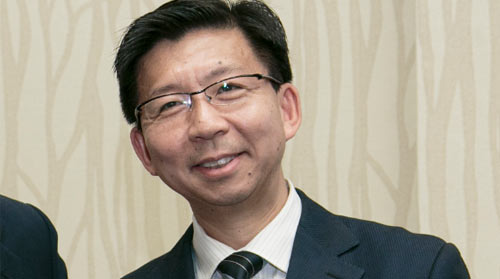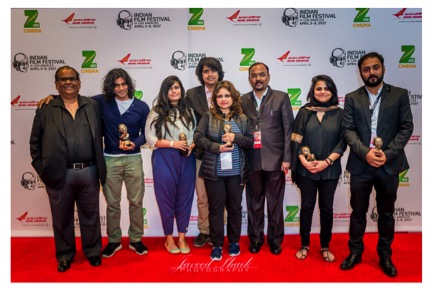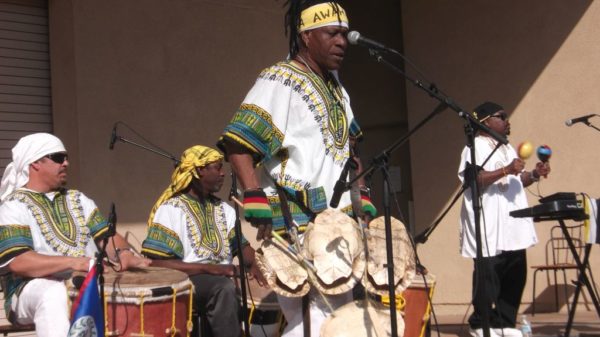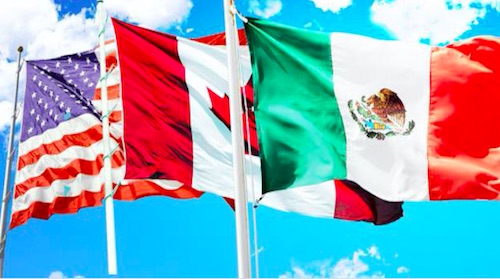Photo: Dr. Xinqi Dong (photo courtesy GSA)
ORLANDO, Fla.–Filial piety has been part of the Chinese tradition for centuries, but would it have changed after the Chinese immigrated oversea? Are there any differences in practicing and reflecting filial piety? Are there cultural conflicts in American society?
According to the United States Census Bureau, the Chinese immigrants population in the U.S. has increased from nearly 400,000 in 1980 to over 2 million in 2013. Forty percent of them entered the U.S. after 2000.
“Many of the new immigrants are older adults who were brought to this country by their children who live here”, said Xinqi Dong, MD, director of Chinese Health, Aging and Policy Program at Rush University in Chicago.
For the seniors, they are happy to be reunited with their children. They help take care of the grandchildren in exchange for old age support and care. While grandparenthood is keeping them active and bringing joy to their lives, they are facing immigration-related stress and caregiving stress.
PINE Study’s 3,100 Chinese Elders
Dong is the lead researcher of The PINE Study — a comprehensive health and wellbeing assessment of more than 3,100 Chinese older adults in the greater Chicago area. His team of researchers formed academic-community partnership, dedicated to improving the health and quality of life of the Chinese aging population through education, research, service and community engagement.
Investigators for the PINE study, which was funded by the National Institutes of Health, interviewed participating elders for two or more hours in their own languages, such as Mandarin, Cantonese, Taiwanese and Taishanese.
The results of the PINE Study were published in GSA’s peer-reviewed Journals of Gerontology, Series A: Biological Sciences and Medical Sciences.
Dong and his research team for the PINE Study (the acronym is from the Population study of ChINese Elderly) found that when it comes to filial piety, parents may expect more affectionate care than material support.
For adult children, when their quality of life is better, they tend to offer more financial support to their father; while mothers may require more of other types of filial piety.
Although filial piety has been part of the Chinese tradition virtues, many ask today how well is it passed along to the next generation and in a new culture? The way that second or third generation Chinese American perceive filial piety remains unclear. Dong added, filial piety is not only about how much time you spend with your parents, but the quality of how that time is spent, as well.
Dong was chosen by the Gerontological Society of America (GSA) as the 2015 recipient of the Joseph T. Freeman Award.
This honor, given annually, is a lectureship in geriatrics and is awarded to a prominent physician in the field of aging — both in research and practice. The award was presented recently at GSA’s 68th Annual Scientific Meeting in Orlando, Florida. The winner traditionally presents a lecture at the Annual Scientific Meeting the following year.
In 2011, Dong also received GSA’s equally prestigious Maxwell A. Pollack Award for Productive Aging.
His research focuses on the epidemiological studies of elder abuse and neglect both in the U.S. and China, with particular emphasis on the intersections of violence, culture and health outcomes.
Dong actively works with Chinese communities to promote understanding and civic engagement on the issues of elder abuse and neglect through innovative culturally and linguistically appropriate ways. He currently serves on the board of directors for the Chinese American Service League, the largest social services organization in the Midwest serving the needs of Chinese population.
Geoff Chin originally wrote this article in Chinese for American Commercial News with support from the Journalists in Aging Fellowships, a program of New America Media and the Gerontological Society of America, sponsored by The Commonwealth Fund.










